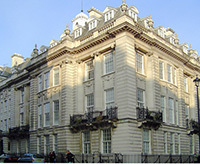 University of Notre Dame’s London Centre
University of Notre Dame’s London Centre
Eight Notre Dame graduate students from the history and English departments joined eight peers from U.K. partner universities this summer for an intensive workshop designed to foster cross-disciplinary training, accelerate dissertation progress, and build international networks of young scholars.
Held July 1-17 at the University of Notre Dame London Centre in Trafalgar Square, the first Global Dome Dissertation Accelerator was organized around the theme of transnationalism. It called on participants to “investigate the methodological, disciplinary, and conceptual challenges and advantages of thinking beyond the nation and across linguistic, ethnic, and political boundaries in the humanities research and training.”
“The program exceeded our expectations,” says History Department Chair Patrick Griffin. “Each and every grad student came away with a better sense of the overall shape of his or her project.”
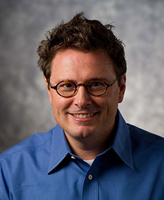 Elliott Visconsi
Elliott Visconsi
Global Dome was created and directed by Griffin, the Madden-Hennebry Professor of History, and Associate Professor of English Elliott Visconsi, the chief academic digital officer at Notre Dame. The program was also supported by John McGreevy, I.A. O’Shaughnessy Dean of the College of Arts and Letters, and Nicholas Entrikin, the University’s vice president and associate provost for internationalization.
“We were hoping to build an academically intense and career-defining experience,” Visconsi says. “The outstanding students from English and history—from ND and our partner institutions—were the key to our success. The students contributed not only the intellectual spark of cross-disciplinary conversation but also the rigor and scholarly seriousness to give that conversation lasting value.”
New Perspectives
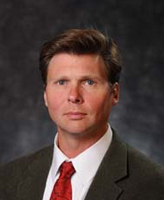 Patrick Griffin
Patrick Griffin
Each day of the program, a leading scholar from a partner institution—which included Oxford, King’s College, and Queen Mary—delivered a plenary address on how his or her work was informed by transnational perspectives, and engaged in vigorous Q&A on the ideal of transnational humanities.
“We challenged all participants to think of their projects from a perspective of what we called ‘altitude,’” Griffin says. “In the struggle to stand above your project, more clearly articulate your fundamental questions, and explain why it matters to an audience of non-experts, you climb up to a height that allows you to organize your whole project in a compelling way.”
Additional workshop sessions led by graduate students fostered interdisciplinary discussions in which students presented a chapter of their dissertations and were then critiqued from multiple perspectives.
“Each participant, we hoped, would be forced to move from the comfort zone of his or her discipline,” Griffin says. “Because all were in relatively early stages of dissertation writing, we also hoped to shape the trajectory of the overall project, encouraging them to envision their work in new ways and accelerate completion of dissertations that would help them stand out from the crowd.”
The workshop was a model of engagement, Visconsi says. “Our partner faculty regularly commented on the extraordinarily quality of the student work and discussion.”
For graduate students, the benefits were significant, Griffin says. “Not only did they gain perspective on their work, but they also developed a network of first-rate scholars from some of Britain’s leading institutions.”
International Networks
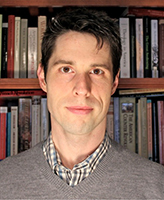 Joshua Kercsmar
Joshua Kercsmar
Joshua Kercsmar, a Ph.D. candidate in Notre Dame’s Department of History, calls the experience “a highlight” of his graduate career. “It enabled me to meet a fine cadre of graduate students, all of whom are doing fascinating work and some of whom are working on topics that directly bear on my own.
“And in the course of living, eating, and exploring London together, we had numerous opportunities to revisit our discussions outside the seminar room. We formed friendships, as well, that will hopefully last throughout our careers. I also met leading scholars whose lectures have already benefited my work. In short, I cannot recommend the program highly enough.”
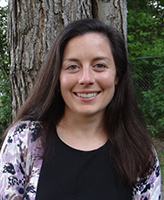 Kara Donnelly
Kara Donnelly
The program’s informal but intense intellectual environment was a huge benefit, says Kara Donnelly, a Ph.D. student and University Presidential Fellow in the Department of English.
“We started off at a break-neck pace, but that helped to develop a community feeling, a sense that we were all in this together,” she says. “Everyone was engaged with everyone else’s work, and debates would spill over after the seminars.”
For faculty, the pay-off was just as substantive, Griffin says.
“The program allowed us to cultivate relationships with top scholars who will now have a stake in what we are trying to accomplish in the international stage,” he says. “Faculty networks need to be built and developed through hands-on work. This program accomplished this goal as well.”
Model Program
Griffin said programs like Global Dome do more than elevate the visibility of Notre Dame. “Global Dome gave us nearly three weeks of intense work with established and up-and-coming scholars from institutions we want to foster relationships with. The key is to build on these relationships and develop more programs that bring greater depth to international networks.”
Griffin hopes to run the program again next year and to expand it to other Notre Dame Global Gateway sites and across other disciplines.
“If English and History can do it, so can other programs. We hope Global Dome becomes a model others can emulate.”


